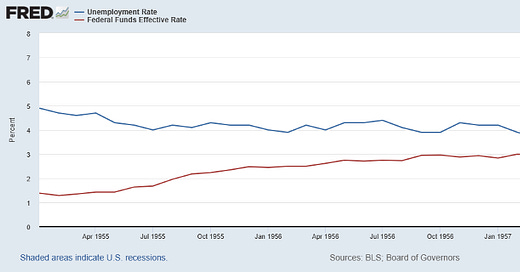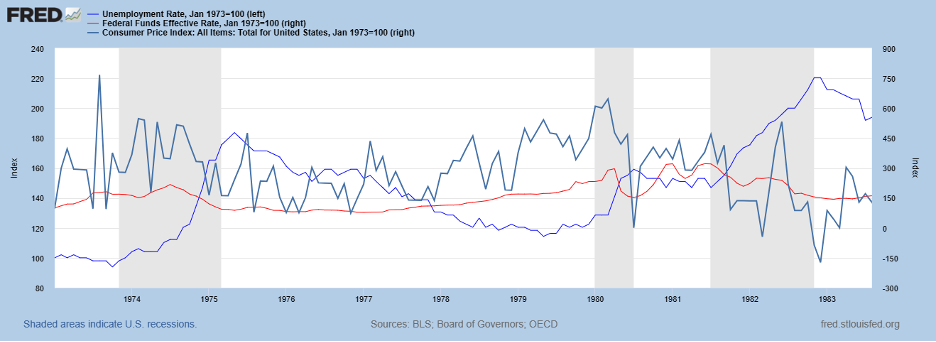In the trenchant analysis of Part 1, we navigated through the tangled skein of the Yom Kippur War's military confrontations and political maneuverings. On my blog today, I delve into the 'Echoes of Consequence,' where we'll dissect the war's ripple effects across diplomatic boardrooms and through the volatile currents of the global economy. This is where the aftershocks of conflict reveal their true extent, influencing policies and pocketbooks alike. As always, I aim to cut through the complexity, offering clarity and insight on how these historical events continue to cast long shadows over our contemporary world.
The Unfolding of Miscommunication
This may have misled or at least encouraged Israel’s western supporters into continued support of Israel, despite expressed frustrations over repeated Israeli rejections of further peace overtures most notably those made by Egyptian President Anwar Sadat in 1971, who sought to end the closeness of Egypt’s relationship with the Soviet Union that his predecessor, President Gamal Abdel Nasser had pursued.
Although Assistant US Secretary of State Joseph Sisco notified informed Israeli ambassador Yitzhak Rabin that “Israel would be regarded responsible for rejecting the best opportunity to reach peace since the establishment of the state" and although Swedish diplomat Gunnar Jarring blamed Israel for refusing to accept mediated peace proposals, when the Yom Kippur conflict broke out, the west, especially USA, provided unparalleled military and logistical support to Israel in 1973. The region had in many ways become a proxy of US-Soviet cold war tensions during the 1960s, with US providing generally unwavering support to Israel to counteract Soviet influence, alliances and economic ties in the region, most notably with Egypt and Syria, especially in the aftermath of the Anglo-French humiliation at Suez, which, very much in the spirit of the age, America had treated with a degree of self-interested disdain.
The Struggle for Peace and Security
Detail the major advances by coalition forces and the significant military and logistical support provided by the US to Israel. Discuss the intricacies of the ceasefires and how, despite the tense international climate, a pathway toward peace and security was eventually forged, leading to the Camp David Accords and the subsequent Egyptian-Israeli peace treaty.
Against this backdrop, when coalition forces made major advance in the early hours and days of the conflict (partly because of Israeli PM Golda Meir’s insistence that Israel should initially very much appear to be the victim of aggression in order to ensure the fullest support from allies including America), destroying the Israeli Bar-Lev defensive line, US President Nixon arranged for the largest ever shipment of weapons and supplies, dwarfing the Berlin airlift. In a tense environment, Russia also responded by sending supplies and war materiel to its allies in the coalition and when Russia indicated an intention to send troops, the US increased its readiness to DEFCON 3 (most likely triggered by misleading US intelligence reports), for the first time since the Cuban Missile Crisis. Nuclear conflict was only avoided when Russia agreed not to become directly involved. The UN Security Council moved a US-Russian proposal for a cease fire, which after a series of false starts was ultimately adopted. Britain, whose imperial ambitions had originally been at the root cause of much of the trouble, recognised that peace in the region was dependent on restoring the pre-1967 boundaries. The ceasefire helped launch a pathway to greater regional security, culminating in the return of captured territory and the signing of the Camp David Accords of 1978 and the 1979 Egyptian-Israeli peace treaty the following year. America played a key role in facilitating these arrangements, and in doing so successfully increased US influence with Egypt and other Arab states. However, the immediate aftermath of the Yom Kippur conflict was much more challenging for America and the west.
The Economic Fallout: An Oil Embargo and Its Consequences
Prior to the coalition’s invasion, Saudi’s minister of oil, the Harvard-educated Sheikh Yamani[1], had warned that Saudi and other OPEC members would impose an oil embargo in response to what were viewed as western-supported delays in Israel returning lands conquered in 1967. It’s widely recognised that the Nixon administration, especially foreign secretary Kissinger, failed to take these warnings seriously.[2] This despite the fact that Yamani was a civil servant in the Saudi government at the time of the 1956 oil blockade that followed the Suez crisis. This had devastating effects not only in Britain and France, with petrol rationed and Prime Minister Eden forced to resign.
The resulting inflationary pressures were also felt in America, where Fed Chair, William McChesney Martin increased the Federal Funds rate (FFR) from 2.5% in January 1957 to 3.5% over the following 6 months, precipitating a short but extremely sharp recession, high unemployment and a stockmarket crash.[3]
Perhaps Kissinger was distracted with winning the Nobel Peace Prize in Paris, replacing William P Rogers as Nixon’s Secretary of State or just busy perpetrating the war crimes his detractors accuse him of. Either way, the warnings weren’t taken seriously. Following the initial shipment of US arms and supplies, an emergency OPEC summit was convened at the Kuwait City Sheraton on October 16th (the 11th day of the conflict), at which it was decided to increase the price of OPEC oil from $3.01 $5.12 per barrel. This was a major inflection in the price of an essential commodity that had generally declined in price for over a century:
More aggressive proposals such as the "total nationalization" of all American oil interests in the Middle East, the withdrawal of all Arab investments in America, the termination of diplomatic relations with America and the imposition of a complete embargo on oil exports to America and its allies were rebuffed by the view of Yamani and the Saudi delegation that an oil price hike was the most effective way to best way to determine American policy.
OPEC members cut production by 5% the following day and doubled down on threats to institute an oil embargo against Israel's main allies: the United States, the Netherlands, Rhodesia, South Africa, and Portugal. Tensions were however defused that same day, when Nixon undertook to the Saudi delegation to bring about a settlement to the conflict that was "peaceful, just and honorable [sic] to both sides. However, when 24 hours later, Israeli PM Golda Meir requested $850 million worth of American arms and equipment to replace its material losses, Nixon instead sent an immediate congressional requisition for $2.2 billion. This was instantly approved. Kissinger would later admit that the unprecedented arms lift was an error of judgement "I made a mistake. In retrospect it was not the best considered decision we made."
The actions infuriated the previously amenable Saudi administration and 2 days later, on October 20th, King Faisal placed a total embargo on oil shipments to the United States, which was joined by all Arab oil-producers except Iraq and Libya. Two days later, the US-Soviet truce was adopted.
In an echo of the Suez incident a quarter of a century earlier, the embargo led to a global recession. What marked apart the recession of 1973-75 was that for many, this was the first experience of stagflation, where starved of energy, at a time when America imported 83% of its oil needs from OPEC, high inflation, high interest rates and high unemployment co-existed:
The Lasting Impact
Relations between the United States and its European allies became frosty as America was blamed for provoking the embargo by providing unconditional assistance to Israel.
The embargo lasted until March the following year when Sadat intermediated and brokered undertakings that America would adopt a more "even-handed" approach to Middle East tensions, including an undertaking to sell American weapons to Saudi (something that America had previously refused for fear of offending Israel’s concerns that such arms could be used by Saudi against Israel). It’s also been reported that Saudi Arabia was driven to end the embargo because of the catastrophic effect on accumulated Saudi Petro-Dollar wealth of a weaker Dollar and high inflation.
The US recession, which saw a record 2.3 million increase in the number of unemployed, officially lasted from November 1973 to March 1975. The drag on economic growth lasted a decade and inflation persisted almost as long. The unemployment rate finally peaked at 9%, the worst recorded at that time other than the Great Depression. US stocks fell in value by over -50%.
However, that was eclipsed by the UK, where the FTSE fell by -73%.
In the UK, the oil embargo coincided with the miner’s strike, leading to energy shortages that resulted in the ‘three-day week’.[4]
UK inflation ultimately peaked at over 20% as the legacy of the 1973-75 recession cast a long shadow over the UK economy, resulting in a multibillion-Pound bail-out from the IMF. Far more significantly, it opened the way for the election of Margaret Thatcher in 1979 whose monetarist policy mistakes quickly drove unemployment to a record high of over 15%. Unemployment remained above 1979 levels for over 21 years.
The worst affected stockmarket was in the then British territory of Hong Kong. The nascent Hang Seng Index, founded just four years earlier, fell by 91.5% over a period of 21 months starting in 1973.[5]
Fifty years later, the genocide in Gaza that started last month has increased the chances that in addition to the losses of thousands of innocent lives (on both sides, albeit more on one than the other, along with plenty of guilty ones on both sides, albeit more on one than the other) the global economy may once again be derailed by the consequences of the proxy wars of the major powers.
Conclusion:
The Yom Kippur War, while a historical event, offers timeless lessons in the realms of diplomacy, military strategy, and economic interdependence. As we look back, we must also look forward, considering how the echoes of the past still resonate in our contemporary world.
We need a cease fire – Jeremy Corbyn[6]
Reflection:
"In the face of such historical turning points, we find ourselves contemplating the cost of war and the price of peace. As Jeremy Corbyn succinctly puts it, a ceasefire is a clarion call that still holds significance."
The night is darkening round me,
The wild winds coldly blow;
But a tyrant spell has bound me
And I cannot, cannot go.
Spellbound by Emily Bronte
.
[1] For much of the 1970s Yamani was viewed as something of a pantomime villain by western media, even when he was kidnapped and held hostage by Venezuelan crime lord, Carlos The Jackal.
[2] If so, this was one of many acts of negligence for which critics (including Rene Schneider, Peter Tatchell, Christopher Hitchens, Bernie Sanders and celebrity chef Anthony Bourdain) and even admirers such as Niall Ferguson) have called for Kissinger to face trial for war although his defenders include Hillary Clinton. Having met Kissinger, I’m more inclined to side with Schneider, Tatchell, sanders & Bourdain.
[3] https://trendspider.com/learning-center/the-eisenhower-recession-1957-1958/
[4] The ‘three-day week’ was one of a number of serious policy missteps by the Heath government, in an attempt to conserve energy. Commercial users of electricity were limited to three specified consecutive days of power consumption each week and prohibited from working longer hours on those days. Television companies were required to cease broadcasting at 22:30 to conserve electricity, and domestic power supply was rationed (through power outages). The policy was disastrous for the Heath government but also ultimately for the country in that it led to Heath being replaced as Conservative leader by Margaret Thatcher, which proved to be a whole other can of worms.
[5] A popular anecdote of the time was that trading terminals had to be installed at Castle Peak Psychiatric hospital as it was inundated by brokers and investors who had been drive to nervous breakdowns by the market.
[6] https://www.aljazeera.com/opinions/2023/11/6/the-icc-must-investigate-the-crime-of-genocide-in-gaza












